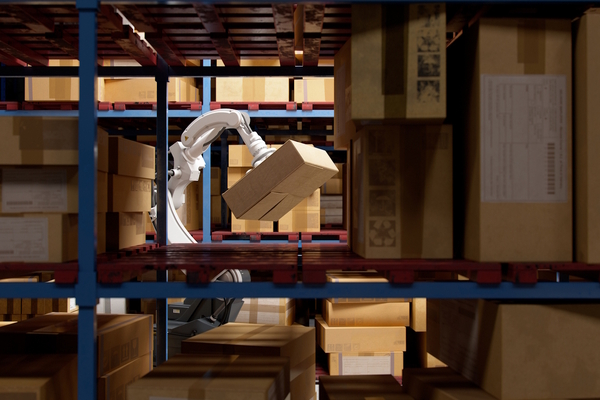Agile companies learn from success, no matter where it comes from
Sponsored by InVision
Lloyd Keaser, a US Naval Academy graduate, won a silver medal in wrestling at the 1976 Olympics. That was a tremendous accomplishment, but the story of how it happened is truly extraordinary. While competing at the Olympic trials, a young fan came up to Keaser and told him that he was not tucking his elbows against his sides while in his neutral position. Wrestlers at any level know “untucked elbows” leaves a wrestler vulnerable. Keaser could have ignored the fan – he was an Olympian, after all, and the fan was just some kid – but he took the advice to heart. He corrected the problem, won his match, made the Olympic team, and represented his country.
Very few corporate leaders are trying to make the US Olympic wrestling team, but every C-suite in America can learn from Lloyd Keaser. Good advice is good advice, no matter the source. Winners listen. If an Olympian is willing to keep his ears open, your company must be willing to, too.

Over the last year, digital product teams (from designers to engineers, developers and project managers) have had some of the best results in the corporate world. It is time the rest of the corporate infrastructure – from accounting and legal to marketing and strategic planning – learns from product teams’ approach to collaboration, problem solving and anticipating what’s next. As we finally exit this painful pandemic and companies regain their footing, they should learn from how product teams helped keep corporations afloat.
That product teams have been critical to corporate profit and revenue is an understatement. From an economic perspective, the Covid-19 pandemic will be remembered as the time when “digital transformation” went from concept to reality, and mostly not by choice. The numbers alone are staggering. Consumers spent $861 billion online with US retailers in 2020, a 40 per cetn increase over 2019. Retailers that maintained a physical presence still relied on digital sales, as the percentage of retailers offering kerbside pickup grew by over 600 per cent. The online food delivery market grew to over $151 billion, with over 1.3 billion regular users. More than 130 million of them started using the service in 2020.

Behind all those dollars, behind each purchase and each satisfied customer, was an app or a website. And behind each app and each website was a digital product team, deftly understanding exactly what their customers wanted and how to build it for them. At a time when brick-and-mortar sales were flat and e-commerce drove almost all corporate growth, it is not a stretch to say product teams were instrumental in keeping their companies afloat.
So, what should agile companies learn from their digital product teams?
First and foremost, product teams managed to foster innovation, even as they worked remotely. They went into the pandemic comfortable with a suite of collaboration tools, from online whiteboards to prototyping, that allowed everyone to get their best ideas in front of their coworkers, even if they weren’t there to present them personally. They also understood that innovation is not just an unformed brainstorm. Rather, innovation comes from bringing a diverse set of ideas into a space that can absorb them, allow them to take root, and allow collective intelligence to help them grow towards company objectives. That way, product teams don’t waste time on “brilliant” ideas that are not technically feasible or creating digital products that do not square with market demands. These well-honed processes never required in-person interaction; as corporations move towards hybrid work, or even remain all-remote, in the wake of the pandemic, they should adopt this same approach to innovation.
Second, product teams are committed to rigorous research, and rely on what researchers have told them throughout the process. They do not believe their judgment should be a substitute for what consumers have told them they want or need. During the pandemic, when so many existing business practices were rendered impossible, this grounding in consumer need and hard data, rather than personal impulse and experience, was essential.
Finally, product teams truly empathise with customers. They put themselves in their customers’ shoes and understand what their customers’ experience. That helps them develop products that are useful for right now, but it also helps them anticipate what customers will want next. That’s how product teams built apps for restaurants that didn’t just allow for mobile ordering or kerbside pickup, but empowered far greater consumer customisation. That’s how retail apps started gamifying purchases from their stores.

That’s why so much of the digital transformation in consumer behaviour from the pandemic will last so long into the future.
Agile, successful companies learn from what’s working, and they learn quickly. At a time when market opportunities open in days and shut almost as fast, “we’ve always done it this way” thinking – or, worse yet, “we can’t learn from them because they do things differently” thinking – can be fatal. In the post-Covid economy, every large company will have to be digital first, making it all the more important to learn from the teams that have thrived in the digital sphere.
So, let’s see legal teams “huddled” around a digital whiteboard. Let’s see HR engage in structured, directed brainstorming. Let’s see marketing reflexively referring to research. Let’s see your accounting team putting themselves in the shoes of company employees and investors. That’s what a company prepared for a digital first future looks like.
Ultimately, it’s simple: if an Olympic wrestler can learn from a kid before one of the most important matches of his life, your C-suite can learn from the product teams that powered them through the pandemic.
Companies must adopt best practices from teams that thrived during the pandemic.
Images provided by InVision
Most Viewed
23-29 Hendon Lane, London, N3 1RT
23-29 Hendon Lane, London, N3 1RT
020 8349 4363
© 2024, Lyonsdown Limited. Business Reporter® is a registered trademark of Lyonsdown Ltd. VAT registration number: 830519543
Join the Business Reporter community today and get access to all our newsletters, and our full library of talk show episodes
Join the Business Reporter community today and get access to all our newsletters, and our full library of talk show episodes





